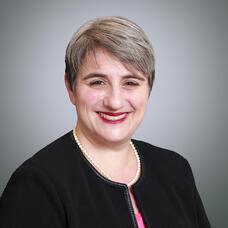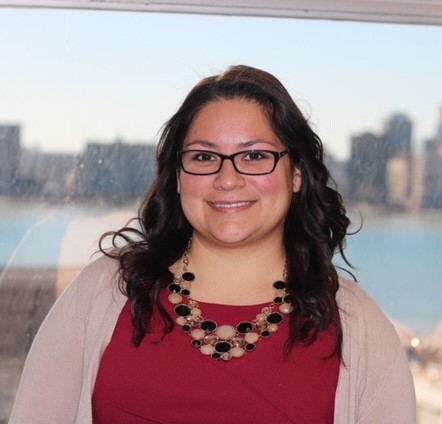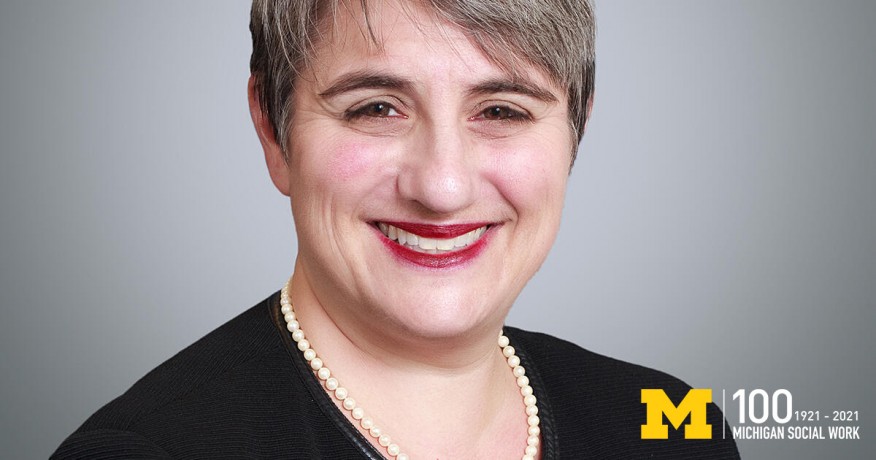Centennial Lecture Series: Sharon Parrott - Pandemic, Relief, and Building toward an Equitable Future
to
Join us for our Centennial Lecture Series featuring Michigan Social Work Alumna, Sharon Parrott, MSW '92.
Pandemic, Relief, and Building toward an Equitable Future: The health and economic crisis shined a light on and exacerbated longstanding problems that were in plain sight for those willing to see them long before COVID-19. The crisis made clear the weaknesses in our economic and health security programs that are supposed to protect people when hard times hit while also showing in the starkest terms the stark inequities across lines of race, ethnicity, gender, and immigration that long pre-dated the pandemic. Parrott will talk about the impacts of the health and economic crisis across different groups, both the strengths and weaknesses of our public response to the crisis, the opportunity for long-term, systemic policy changes that could broaden opportunity, reduce poverty and inequality, narrow disparities, and move us toward universal health coverage, and the challenges to achieving these policy goals. Parrott will also reflect on the “long arc” of policy change and the forces that can create and stymie change.
Keynote
 Sharon Parrott is President of the Center on Budget and Policy Priorities. Parrott has nearly three decades of experience at the Center and in government. Her expertise spans a broad range of issues, including policies to reduce poverty and expand opportunity, the intersection of the federal budget and low-income programs, and the use of data and analysis to inform policy debates.
Sharon Parrott is President of the Center on Budget and Policy Priorities. Parrott has nearly three decades of experience at the Center and in government. Her expertise spans a broad range of issues, including policies to reduce poverty and expand opportunity, the intersection of the federal budget and low-income programs, and the use of data and analysis to inform policy debates.
Parrott rejoined the Center in 2017 after two years at the Office of Management and Budget (OMB) and served as the Center’s Senior Vice President for Federal Policy and Program Development before taking over as President in 2021. At OMB she served as Associate Director of the Education, Income Maintenance, and Labor Division, with budget and oversight responsibilities for the Departments of Labor and Education, the Social Security Administration, the human services programs at the Department of Health and Human Services (HHS), and the nutrition programs at the Department of Agriculture. As Associate Director, Parrott helped design budget and policy proposals, craft regulations, implement programs, and address management and budget challenges in these agencies.
Parrott also played a key role in the Center’s work on the federal budget, the impact of federal budget decisions on low-income populations, low-income tax policy, and policies that ensure that solutions to climate change do not adversely impact the economic well-being of low-income households.
In 1999 and 2000, Parrott was detailed to the District of Columbia's Department of Human Services, where she served as a Senior Policy Advisor on TANF, food stamps, and Medicaid issues.
She received a B.A. in economics and a master’s degree in social work from the University of Michigan.
Discussants
 Luke Shaefer, PhD, is the Hermann and Amalie Kohn Professor of Social Justice and Social Policy and Associate Dean for Research and Policy Engagement at the Gerald R. Ford School of Public Policy at the University of Michigan. He is also a professor of social work and the inaugural director of Poverty Solutions, an interdisciplinary, presidential initiative that partners with communities and policymakers to find new ways to prevent and alleviate poverty. Through his role at Poverty Solutions, Shaefer acts as a special counselor on anti-poverty policy to the director of the Michigan Department of Health and Human Services. Shaefer’s research on poverty and social welfare policy in the United States has been published in top peer-reviewed academic journals in the fields of public policy, social work, public health, health services research, and history, and his work has been supported by the National Science Foundation, the Bill and Melinda Gates Foundation and U.S. Census Bureau among other sources. He has presented his research at the White House and before numerous federal agencies, has testified before the U.S. Senate Finance Committee and has advised a number of the nation’s largest human service providers. His work has been cited in media outlets such as the New York Times, Washington Post, The Economist, The Atlantic, and Los Angeles Times, and he has been featured on such programs as Marketplace and CNBC’s Nightly Business Report. His book with Kathryn Edin, “$2.00 a Day: Living on Almost Nothing in America,” was named one of the 100 Notable Books of 2015 by the New York Times Book Review, and won the Hillman Prize for Book Journalism among other awards. He was recently named to an Andrew Carnegie Fellowship.Shaefer received his BA in politics from Oberlin College and AM and PhD from the University of Chicago, School of Social Service Administration.
Luke Shaefer, PhD, is the Hermann and Amalie Kohn Professor of Social Justice and Social Policy and Associate Dean for Research and Policy Engagement at the Gerald R. Ford School of Public Policy at the University of Michigan. He is also a professor of social work and the inaugural director of Poverty Solutions, an interdisciplinary, presidential initiative that partners with communities and policymakers to find new ways to prevent and alleviate poverty. Through his role at Poverty Solutions, Shaefer acts as a special counselor on anti-poverty policy to the director of the Michigan Department of Health and Human Services. Shaefer’s research on poverty and social welfare policy in the United States has been published in top peer-reviewed academic journals in the fields of public policy, social work, public health, health services research, and history, and his work has been supported by the National Science Foundation, the Bill and Melinda Gates Foundation and U.S. Census Bureau among other sources. He has presented his research at the White House and before numerous federal agencies, has testified before the U.S. Senate Finance Committee and has advised a number of the nation’s largest human service providers. His work has been cited in media outlets such as the New York Times, Washington Post, The Economist, The Atlantic, and Los Angeles Times, and he has been featured on such programs as Marketplace and CNBC’s Nightly Business Report. His book with Kathryn Edin, “$2.00 a Day: Living on Almost Nothing in America,” was named one of the 100 Notable Books of 2015 by the New York Times Book Review, and won the Hillman Prize for Book Journalism among other awards. He was recently named to an Andrew Carnegie Fellowship.Shaefer received his BA in politics from Oberlin College and AM and PhD from the University of Chicago, School of Social Service Administration.
 Laura Urteaga-Fuentes, LMSW, is the Workforce and Homeless System Alignment Program Manager at Detroit at Work. Prior to this role, Laura served as University of Michigan's Poverty Solutions’ homelessness policy fellow, a unique partnership between Poverty Solutions and the City of Detroit meant to increase capacity and infuse the city with the university’s action-oriented research. Laura has 8 years of experience working in policy and systems improvement in homeless response systems, including 6 years in Washtenaw County and 2 years in the City of Detroit’s Housing and Revitalization Department. She holds a Master of Social Work degree from the University of Michigan and has been practicing macro social work for more than 12 years. In all of her work, Laura strives to enact effective systems change by incorporating national best practices, local data and analysis, and the voices of all necessary partners and those with lived expertise.
Laura Urteaga-Fuentes, LMSW, is the Workforce and Homeless System Alignment Program Manager at Detroit at Work. Prior to this role, Laura served as University of Michigan's Poverty Solutions’ homelessness policy fellow, a unique partnership between Poverty Solutions and the City of Detroit meant to increase capacity and infuse the city with the university’s action-oriented research. Laura has 8 years of experience working in policy and systems improvement in homeless response systems, including 6 years in Washtenaw County and 2 years in the City of Detroit’s Housing and Revitalization Department. She holds a Master of Social Work degree from the University of Michigan and has been practicing macro social work for more than 12 years. In all of her work, Laura strives to enact effective systems change by incorporating national best practices, local data and analysis, and the voices of all necessary partners and those with lived expertise.
Event Details
- 5/19/2021 - 4:00 PM to 5:30 PM
This event has no location.
